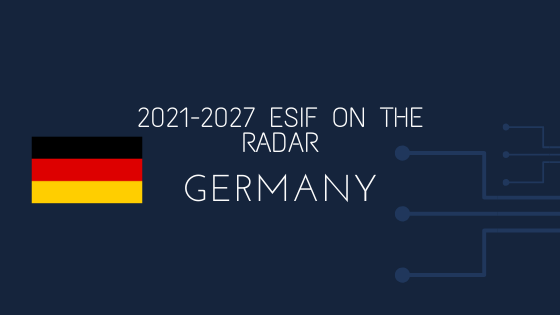Business for tomorrow: Germany on the radar
EU Cohesion Policy (CP) is of great importance for Germany. The country receives around 28 billion Euros from cohesion funding in the current budget (2014-2020). Particularly the eastern regions of the country (Berlin, Brandenburg, Mecklenburg-Vorpommern, Sachsen, Sachsen-Anhalt, Thüringen) benefit significantly from EU support, receiving around 50% of the funds allocated to Germany.
The main areas of spending in Germany are currently "social inclusion" and "research & innovation".Among others, 1.3 million people in Germany have participated in projects funded by the European Social Fund to change their employment status, becoming reactivated members of the workforce and finding a job. This includes around 200000 long-term unemployed who received assistance. The EU has also helped to improve the research infrastructure for almost 20000 researchers as well as creating over 2000 new research positions.
As negotiations for the Multi-Annual Financial Framework continue, recent press reporting has offered a glimpse into the negotiation strategy of the German government.
Germany is strictly opposed to raising the contribution of Member States to the EU long-term budget above the current 1%. In a paper published last year, it was predicted that the proposed contribution of 1,11% by the Commission would result in an annual contribution by Germany of 45 billion Euros, which was seen as unreasonable.
Under the current Commission proposal Germany is set to receive a total of 17,68 billion Euros in cohesion funds for the period of 2021-2027.
Planning on how this money will be spent is currently being done on both the federal and regional level. Several German regions are conducting public consultations and events to collect contributions from stakeholders for the operational programmes for the next funding period.The region of Hessen predicted, that a focus of the spending after 2021 will be on the topics "A smarter Europe" and "A greener carbon free Europe", i.e. tackling climate change and supporting research & innovation.
Why should you engage in the ESIF 2021-2027 preparation process?
1. To gain early intelligence on the future EU funded business environment in Germany
2. To plan your future business strategies in the country
3. To position your organization to shape the new EU funding programmes in the country
How we can help you?
At Schuman Associates, we have developed extensive experience in supporting clients to understand and influence the policy and funding framework driving previous EU cycles (2000-2006, 2007-2013, 2014-2020). Through this guidance, our clients were able to leverage downstream market opportunities in their countries of interest and win EU funded business.
Following the right strategy, you will be best placed to either use EU funding for your investment projects or to sell your solutions in public funded projects.
Moreover, our local presence will allow us to:
- Guide you through national, local and regional public funding complementary to ESIF
- Engage with international financing institutions working in Poland in close cooperation with European Commission
- Access key stakeholders and local partners
By accepting you will be accessing a service provided by a third-party external to https://www.schumanassociates.com/


